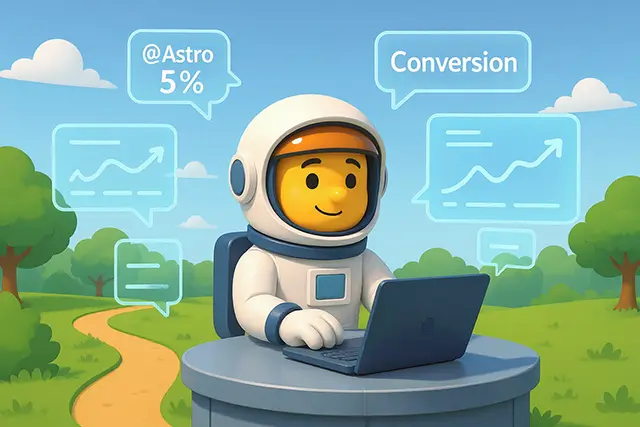7 Overrated Technology Products You Should Think Twice Before Buying

In this article, we are going to take a look at seven technology products that you may be better off not purchasing, either because they are somewhat exaggerated, are soon to be outdated, or carry an unjustified price tag.
In today’s rapidly advancing technology-driven world, making informed decisions about which tech products to purchase can be challenging. With the latest, sometimes overwhelmingly hyped, products hitting the market every day, it’s easy to be drawn into buying devices that may not necessarily be worth your hard-earned dollars.
Table of Contents
7 Overrated Technology Products
Knowing which tech products to skip on can save you money and prevent buyer’s remorse. Let’s dive in and review our pick of 7 Technology Products You Shouldn’t Buy.
1. Extended Warranties for Gadgets
Extended warranties often seem like a good idea at the time of purchase, offering the peace of mind that if something goes wrong with your new device, you’re covered. Yet, the reality is quite different.
According to Consumer Reports, most extended warranties for electronics aren’t worth the cost. Major issues with devices tend to appear either early on (when the manufacturer’s warranty is still in effect) or much later in the gadget’s life (when it may make sense to rather buy a new model).
2. Premium HDMI Cables
Shelves are stocked with premium HDMI cables that command a hefty price tag. These cables claim to offer superior performance, but the truth is that a more expensive HDMI cable will not significantly enhance your picture or sound quality.
In fact, research suggests that even the least expensive HDMI cables are capable of delivering a fantastic image and sound quality. Don’t be fooled by fancy packaging and big price tags.
3. Cheap Printers
While it may be tempting to save a few dollars on a cheaper model, cheap printers are one of those technology products you should think twice before purchasing.
Cheap printers often end up costing more in the long term due to high ink or toner costs. These printers are generally less efficient and costlier per page than pricier models, which can have significantly lower printing costs per page.
4. Quick Charge Stations
Quick charge stations are becoming increasingly popular in airports and cafes, but are they really necessary?
With most modern smartphones and tablets featuring relatively good battery lives and fast charging times, a quick charge station is often an unnecessary purchase. Unless you travel frequently and are unable to find a free charging point, a personal quick charge station may not offer enough value to justify its cost.
5. Large Capacity Hard Drives
In an era where cloud storage is becoming the norm, buying a hard drive with an excessively large capacity isn’t the most economical decision. The reality is that many people don’t use even half of the capacity they own, and their money would be better spent on a smaller drive and cloud space.
If you’re considering purchasing a large capacity hard drive, it’s time to reconsider. Why? Large capacity hard drives are often pricier and surprisingly, they don’t necessarily provide more value. This is especially true if your usage doesn’t match the capacity offered. Not to mention, with current technology trends leaning towards digital storage solutions such as cloud services, large capacity hard drives can feel somewhat redundant. You may find that opting for a lower capacity hard drive supplemented by a subscription to a cloud service offers you greater flexibility, convenience, and cost efficiency.
6. Pre-Installed Software
Many new laptops and desktops come prepackaged with expensive software. Unless you’re sure you’ll use all the included software, it might be more cost-effective to install free or cheaper alternatives.
Picture this: You’ve just purchased a new computer. It’s sleek, fast, and comes with a plethora of programs already installed. Seems fantastic, right? Until you realize that you’re not only paying for the hardware, but also for bundled software that you don’t need or will never use. It’s a common practice among manufacturers to pre-install software, often known as ‘bloatware’.
Bloatware often takes up unnecessary space and may even slow down your system. It mainly includes trial versions of antivirus software, photo editing tools, video players, and other software that you’ll eventually need to pay to keep using. While these features may sound useful to some, remember that there are usually cheaper or free alternatives available to meet the same requirements.
- Antivirus: While it is crucial to safeguard your computer from harmful malware and viruses, many reputable companies offer free antivirus services that provide sufficient protection, such as Avast Free Antivirus or AVG AntiVirus FREE.
- Photo Editing Tools: Unless you’re a professional photographer, a program like Adobe Photoshop might be too advanced and expensive. There are free alternatives such as GIMP which offer vast editing capabilities.
- Video Players: VLC is a versatile and free media player that supports nearly all file formats, negating the need for multiple premium video players.
In short, don’t splurge on pre-installed software without exploring the market first. A piece of advice? Opt for a computer with just the operating system and then instal the necessary software according to your specific needs. This way, you’ll enjoy uncluttered storage space, faster operating speeds and potentially save a significant chunk of your hard-earned money.
7. Unnecessary Accessories
Last but not least, unnecessary accessories like phone cases with built-in battery or thumb drives with fingerprint sensors, often fall into the ‘not worth it’ category. While they might sound convenient, they often don’t deliver on their promises.
By being aware of these technology products, you can make more informed shopping decisions. Remember, it’s not always the price tag, but the overall value of a product that matters most.
Read also : Top Techniques for Website Optimization
Reference : https://www.businessinsider.com/google-pixel-4-best-features-camera-battery-life-lacks-2019-10







